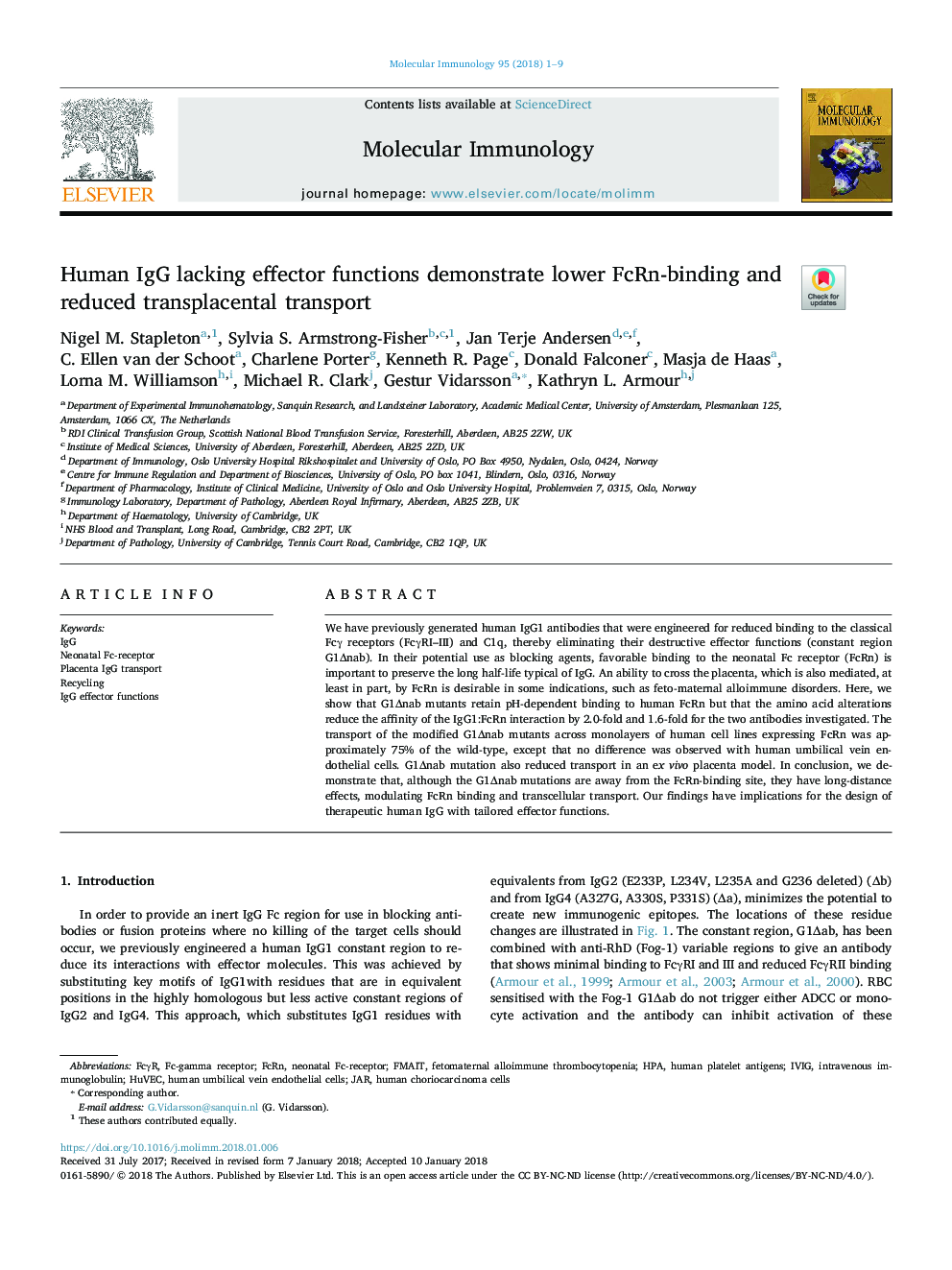| کد مقاله | کد نشریه | سال انتشار | مقاله انگلیسی | نسخه تمام متن |
|---|---|---|---|---|
| 8648563 | 1570698 | 2018 | 9 صفحه PDF | دانلود رایگان |
عنوان انگلیسی مقاله ISI
Human IgG lacking effector functions demonstrate lower FcRn-binding and reduced transplacental transport
دانلود مقاله + سفارش ترجمه
دانلود مقاله ISI انگلیسی
رایگان برای ایرانیان
کلمات کلیدی
موضوعات مرتبط
علوم زیستی و بیوفناوری
بیوشیمی، ژنتیک و زیست شناسی مولکولی
زیست شناسی مولکولی
پیش نمایش صفحه اول مقاله

چکیده انگلیسی
We have previously generated human IgG1 antibodies that were engineered for reduced binding to the classical Fcγ receptors (FcγRI-III) and C1q, thereby eliminating their destructive effector functions (constant region G1Înab). In their potential use as blocking agents, favorable binding to the neonatal Fc receptor (FcRn) is important to preserve the long half-life typical of IgG. An ability to cross the placenta, which is also mediated, at least in part, by FcRn is desirable in some indications, such as feto-maternal alloimmune disorders. Here, we show that G1Înab mutants retain pH-dependent binding to human FcRn but that the amino acid alterations reduce the affinity of the IgG1:FcRn interaction by 2.0-fold and 1.6-fold for the two antibodies investigated. The transport of the modified G1Înab mutants across monolayers of human cell lines expressing FcRn was approximately 75% of the wild-type, except that no difference was observed with human umbilical vein endothelial cells. G1Înab mutation also reduced transport in an ex vivo placenta model. In conclusion, we demonstrate that, although the G1Înab mutations are away from the FcRn-binding site, they have long-distance effects, modulating FcRn binding and transcellular transport. Our findings have implications for the design of therapeutic human IgG with tailored effector functions.
ناشر
Database: Elsevier - ScienceDirect (ساینس دایرکت)
Journal: Molecular Immunology - Volume 95, March 2018, Pages 1-9
Journal: Molecular Immunology - Volume 95, March 2018, Pages 1-9
نویسندگان
Nigel M. Stapleton, Sylvia S. Armstrong-Fisher, Jan Terje Andersen, C. Ellen van der Schoot, Charlene Porter, Kenneth R. Page, Donald Falconer, Masja de Haas, Lorna M. Williamson, Michael R. Clark, Gestur Vidarsson, Kathryn L. Armour,